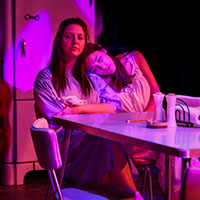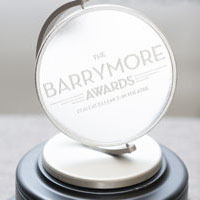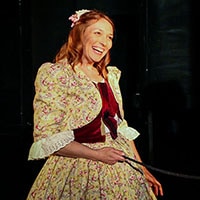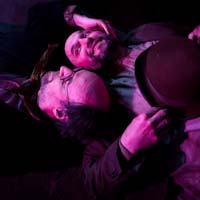Tag: Curio Theatre Company
Review: ‘Crimes of the Heart’ at Curio Theatre Company
Curio Theatre Company’s production of Beth Henley’s Pulitzer Prize winning tragicomedy, Crimes of the Heart, is the dark and hilarious tale of the Magraths...
2017 Philadelphia Fringe Festival Review: ‘I, Peaseblossom’ by Curio Theatre Company...
I, Peaseblossom, written by Tim Crouch and directed by Dan Hodge, is a fun, magical way to become more familiar with Shakespeare’s A Midsummer...
Here are the 2017 Barrymore Awards Nominations
The nominations for the Barrymore Awards for Excellence in Theatre for the 2016-17 season have been announced by Theatre Philadelphia.
A total of 23 companies were recognized across...
Review: ‘The Massive Tragedy of Madame Bovary’ at Curio Theatre Company
How do you turn one of literature’s greatest tragedies into a raucous comedy? Very carefully.
I read Madame Bovary in high school, and while it’s...
Review: ‘Waiting for Godot’ at Curio Theatre Company
Waiting for Godot is generally considered a comedy. Samuel Beckett himself called this, his most famous play, a “tragicomedy.” But its reputation as an...
Review: ‘Antagonyms’ at Curio Theatre Company
An antagonym is a word with two opposite meanings, such as “left” which can mean “remaining” or “departed.” Rachel Gluck’s world premiere Antagonyms at...
Review: ‘The Birds’ at Curio Theatre Company, in Philadelphia
When you think of The Birds, you probably think of Tippi Hedren running for her life through the streets of a California town –...
2016 Philadelphia Fringe Festival Review: ‘Omeletto: Like Hamlet, Only Scrambled’ at...
Commedia dell’arte meets Shakespeare in Ombelico Mask Ensemble’s original deconstruction of Hamlet. Omeletto: Like Hamlet, Only Scrambled synthesizes all of Shakespeare’s dramatic characters with...
Review: ‘The Cripple of Inishmaan’ at Curio Theatre Company in Philadelphia
Telling stories is what the Irish are known for, and Martin McDonagh's The Cripple of Inishmaan, directed by Joshua Browns at Curio Theatre Company,...
‘The Handmaid’s Tale’ at Curio Theatre Company in Philadelphia
As I walked through the narrow passageway leading into Curio’s space, I entered into a spacious, deteriorating church to an ominous red lit stage, hearing...






